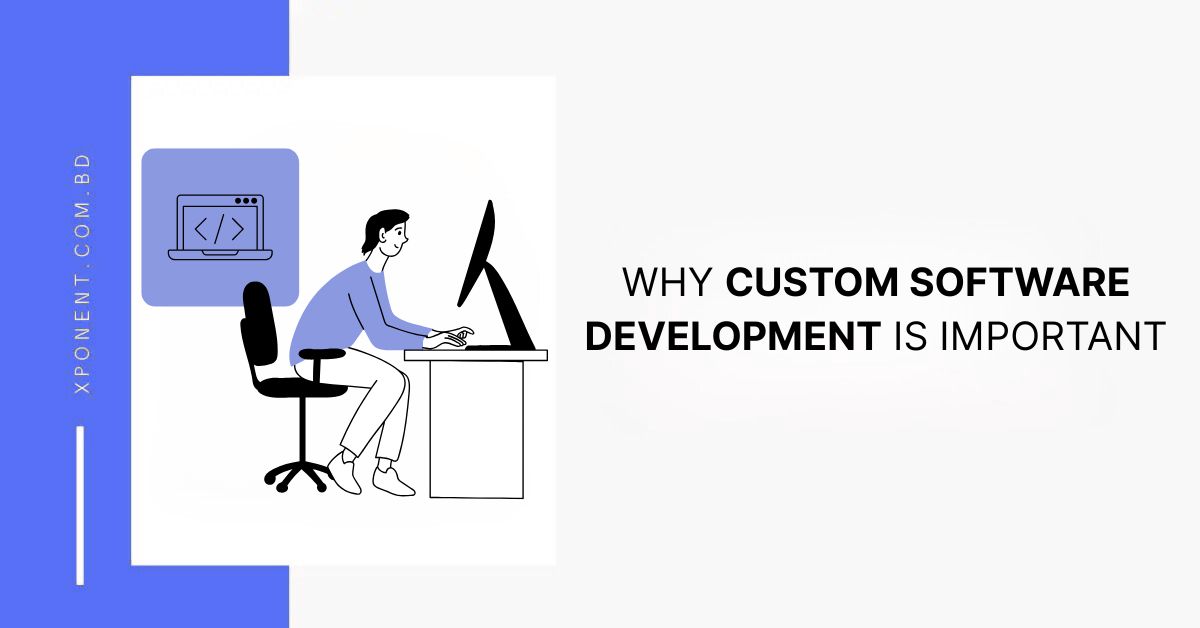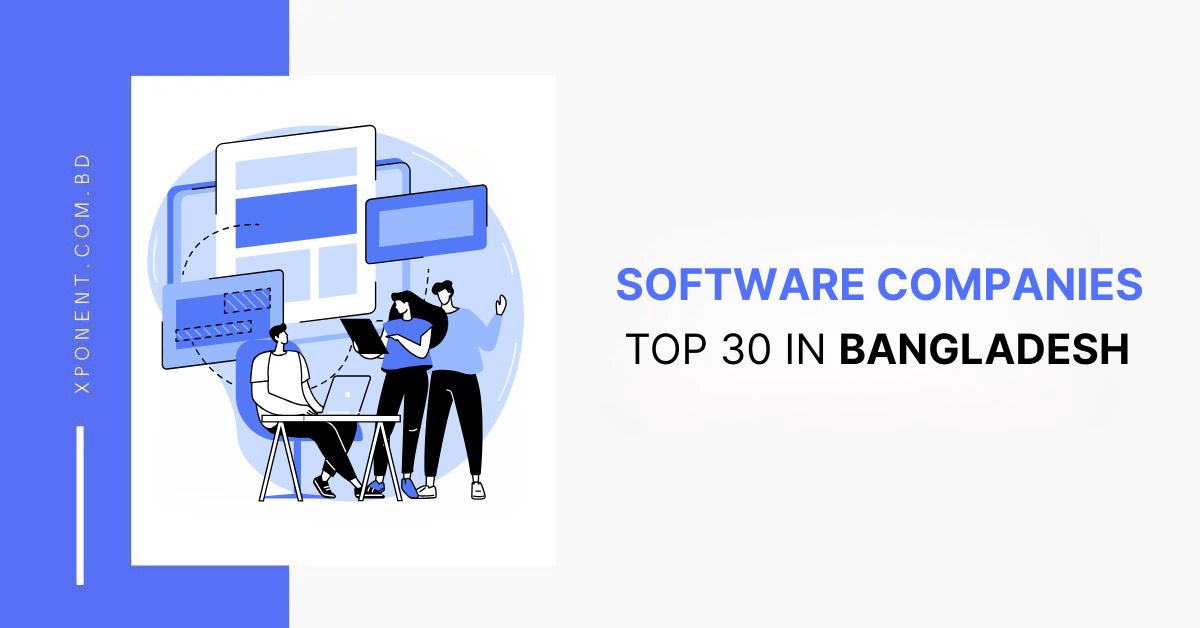Top 10 Food & Beverage ERPs in Bangladesh for 2025
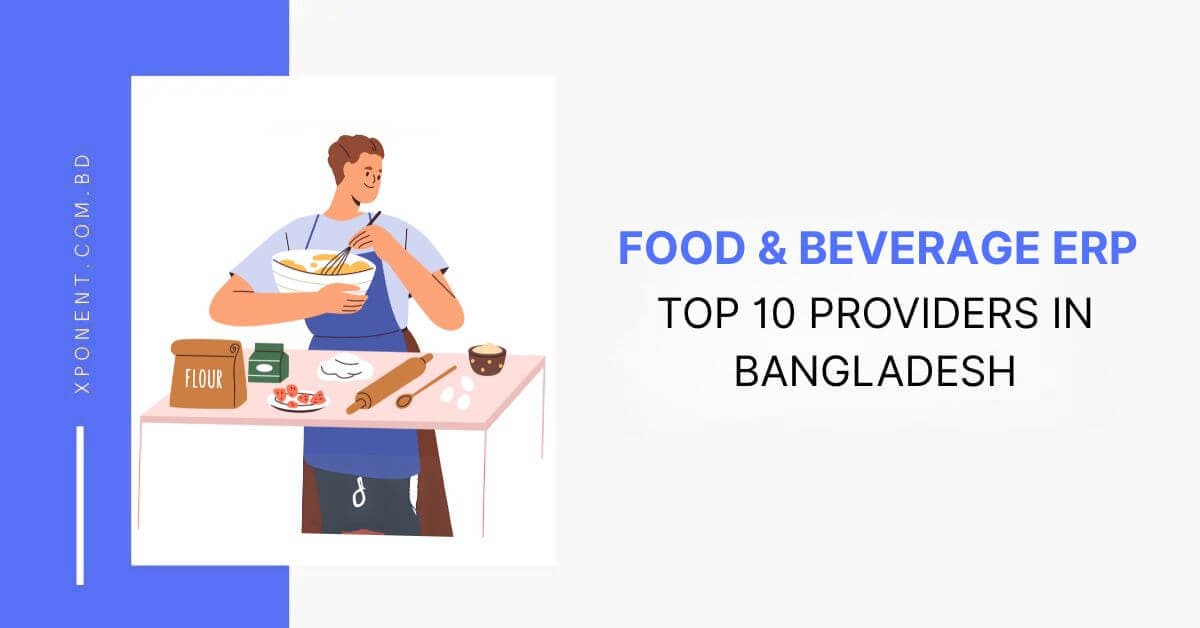
Food and beverage companies in Bangladesh face daily challenges in managing inventory, strict compliance, and complex supply chains.
A specialized food and beverage ERP system is the essential software to control these processes and drive profitability.
This guide offers a complete overview of the best ERP solutions for the F&B sector in Bangladesh.
In this article, we provide a comparative analysis of the top 10 local ERP providers to help you make an informed decision.
Comparative Analysis: 10 Bangladeshi Food and Beverage ERP Providers
Choosing the right ERP provider is a critical decision for any company. Below is a comparative analysis of 10 leading F&B ERP providers, highlighting their strengths and target markets to help you make an informed choice.
| ERP Provider | Primary Focus | Ideal Business Size | Local Compliance Focus |
| 1. PinTechERP (PinCraft) | Dedicated F&B ERP | SME to Large Enterprise | Excellent. Designed for the Bangladeshi market needs. |
| 2. Pridesys ERP | Specialized Industry ERP | SME to Large Enterprise | Excellent. Strong focus on local manufacturing and VAT/Tax rules. |
| 3. PrismERP | Specialized Industry ERP | SME to Large Enterprise | Excellent. Tailored modules for Bangladeshi business processes. |
| 4. ERP.COM.BD | Specialized Industry ERP | SME to Large Enterprise | Excellent. Built with a deep understanding of local compliance. |
| 5. Focus Softnet | International Process ERP | Medium to Large Enterprise | Very Good. An international system adapted for local VAT/Tax laws. |
| 6. Biznify ERP | General Manufacturing | SME to Medium Enterprise | Very Good. Solid core modules for local business operations. |
| 7. XERP | Industrial Manufacturing | SME to Medium Enterprise | Very Good. Strong capabilities for local export-oriented manufacturers. |
| 8. Desh ERP | SME Accounting & Inventory | Small Businesses & Startups | Good. Primarily focused on general SME needs and local VAT. |
| 9. Hisab ERP | General ERP (Subcontinent) | SME to Medium Enterprise | Good. Built for subcontinent business practices, easily adaptable. |
| 10. Bdtask (Bhojon) | Restaurant Management | Restaurants, Cafes, Bakeries | Good. Focused on service industry needs rather than manufacturing. |
Top 10 ERP Software for the Food and Beverage Industry in Bangladesh
Leading local providers include PinTechERP (PinCraft), Pridesys ERP, and Desh ERP. This full list highlights the best specialized and general manufacturing ERPs available from IT companies.
1. PinTechERP (PinCraft)
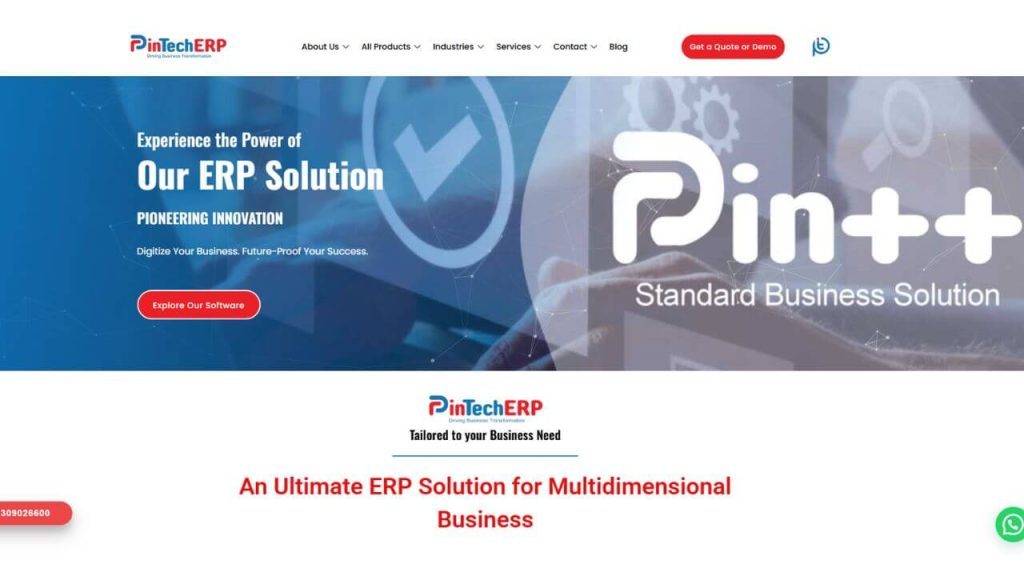
PinTechERP’s “PinCraft” is one of the most specialized ERPs available for the F&B industry. Its purpose-built design makes it a top contender for businesses that require dedicated, industry-specific functionality.
- Key Features: Advanced Recipe & Formula Management, Batch & Lot Traceability, Quality Control (QC) Dashboards, Expiry Date Management.
- Pros: Highly specialized for F&B needs, excellent understanding of local market compliance, strong focus on process manufacturing.
- Cons: As a specialized solution, it may have fewer features for completely unrelated business divisions compared to a general ERP.
2. Pridesys ERP
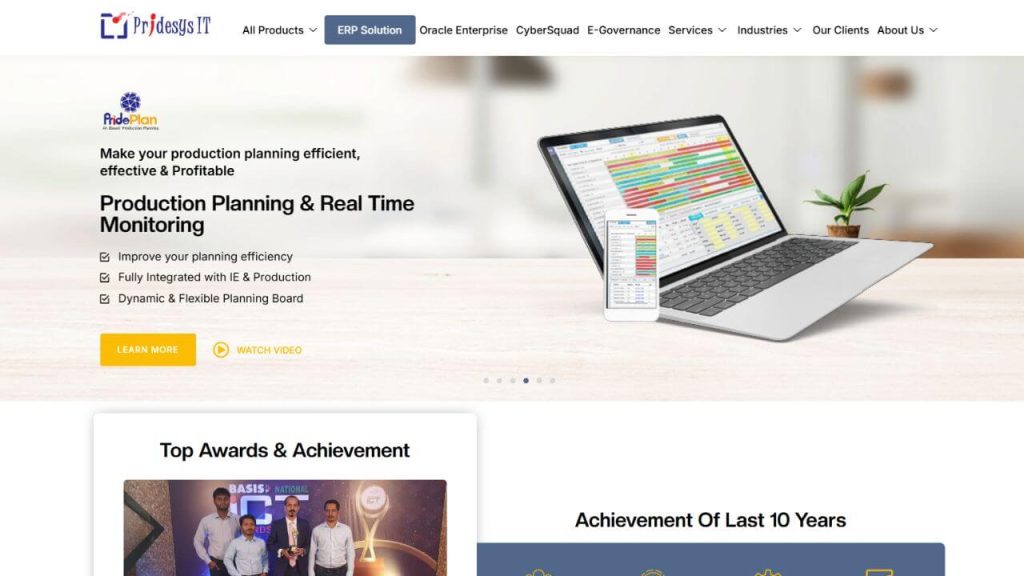
Pridesys is a major player in the Bangladeshi ERP market. It has a well-regarded solution with a specific module and focus on the food and beverage industry.
- Key Features: End-to-end Food Life Cycle Tracking, Inventory with Multiple Units of Measure (e.g., Kgs, Liters, Cartons), Point of Sale (POS) Integration.
- Pros: Strong local reputation and support; comprehensive modules covering almost all business areas, proven experience with large Bangladeshi companies.
- Cons: Can be a more significant investment, potentially better suited for medium to large enterprises.
3. PrismERP
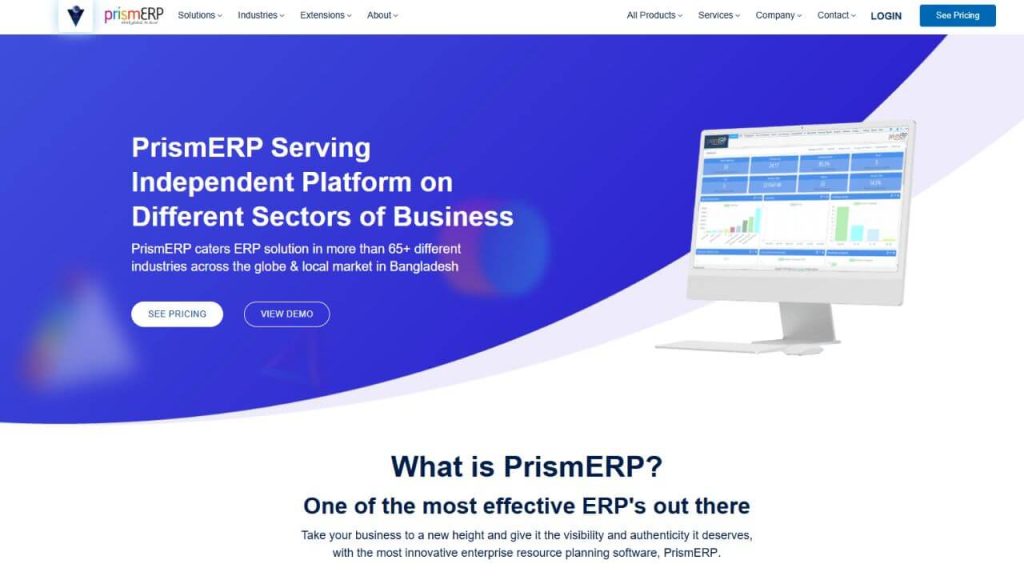
PrismERP is another leading local provider that has successfully implemented its solution in various industries.
- Key Features: Demand Forecasting to reduce waste, Supply Chain Control with Batch Codes, Systematic Production Planning, and Financial Management.
- Pros: Excellent local compliance features, strong focus on data-driven decision-making and waste reduction, and good scalability for growing businesses.
- Cons: User interface might feel more traditional compared to some newer cloud-native platforms.
4. ERP.COM.BD
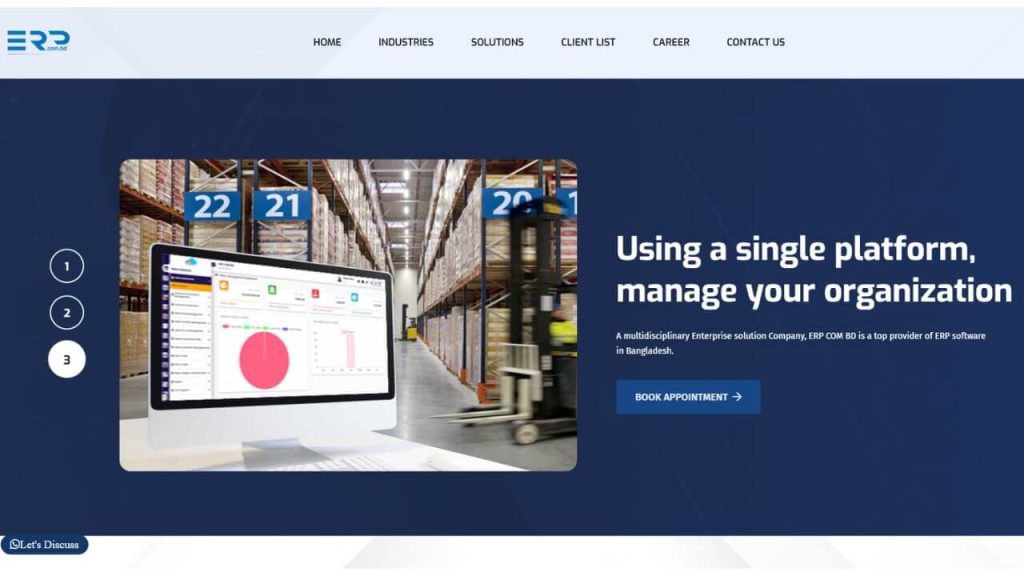
As their name suggests, ERP.COM.BD is a dedicated local ERP provider that lists food and beverage as one of its key industries, offering a solution tailored to local business processes.
- Key Features: Ingredient Sourcing Management, Quality Control Checks, Regulatory Compliance Tracking, Recipe Refinement, and Costing.
- Pros: Deeply integrated with Bangladeshi business practices, flexible and can be customized, and a strong local support team.
- Cons: May not have the same level of global recognition as international brands on this list.
5. Focus Softnet
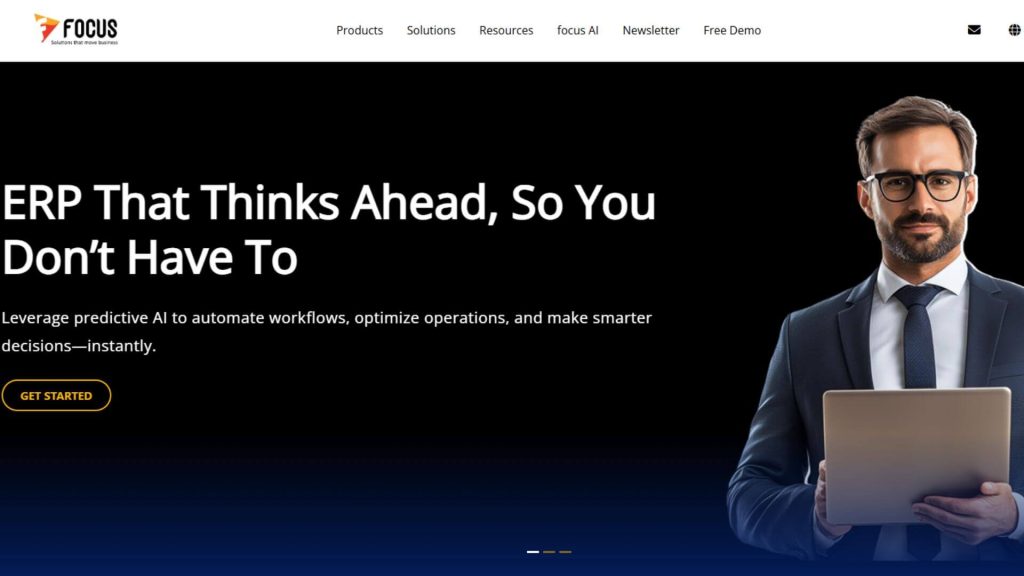
An international ERP provider with a significant presence in Bangladesh, Focus Softnet offers powerful solutions for process manufacturing and restaurant management.
- Key Features: Advanced Process Manufacturing module, Integrated Restaurant Management System (e-RMS), robust Supply Chain Management (SCM).
- Pros: Brings global best practices and features, very strong for larger, complex operations or businesses with international ties, highly scalable.
- Cons: Can be more complex to implement, and pricing might be higher than local alternatives.
6. Biznify ERP (by SoftifyBD)
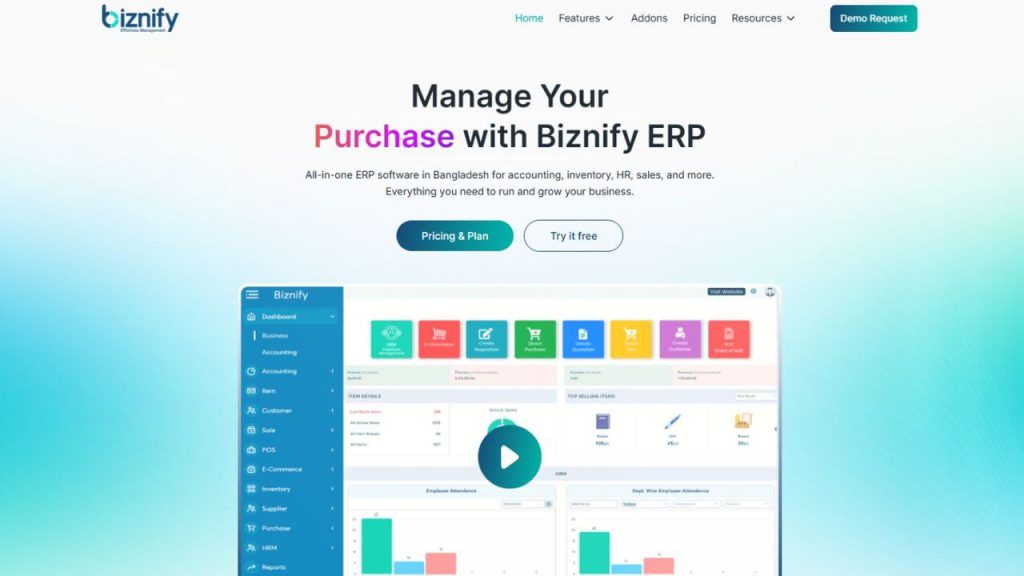
Biznify is a well-known local ERP focused on providing a complete solution for product-based and manufacturing businesses in Bangladesh.
- Key Features: Strong Production Planning, End-to-End Manufacturing Process Tracking, Core Inventory and Accounting Modules.
- Pros: Good value for the features offered, strong local support and understanding of the SME market, and user-friendly interface.
- Cons: Not specifically designed for F&B, so it lacks advanced features like recipe management out of the box.
7. XERP (by Extreme Solutions)
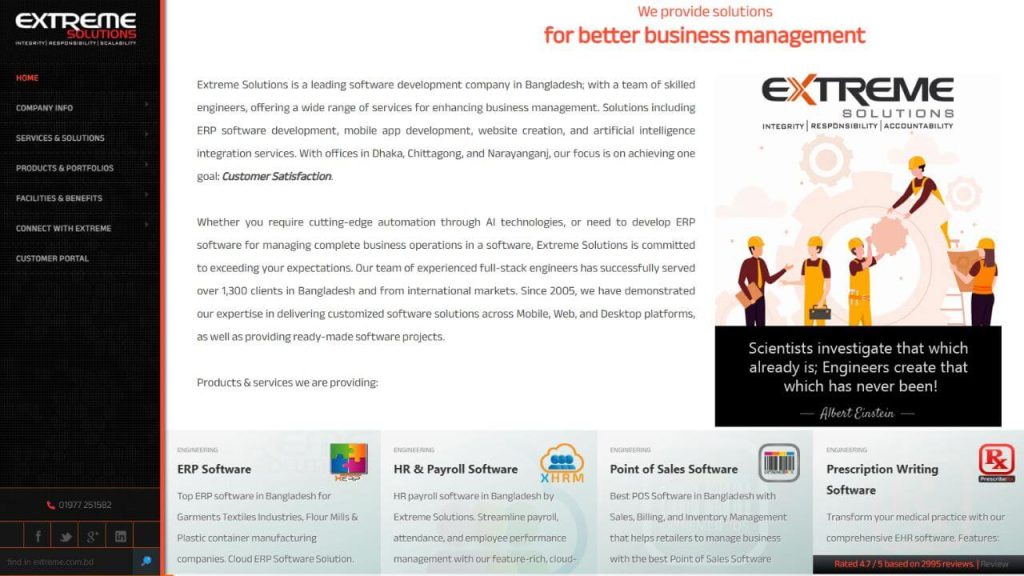
XERP is an industrial ERP designed for the manufacturing sector in Bangladesh, making it a solid choice for food processors who are heavily focused on production and export.
- Key Features: Excellent Export LC Management, Strong Inventory & Production Control, Sales and Distribution modules.
- Pros: Ideal for export-oriented food manufacturers, handles complex logistics and commercial documentation well, and is a reputable local provider.
- Cons: Lacks specialized F&B features like formula management and advanced traceability.
8. Desh ERP
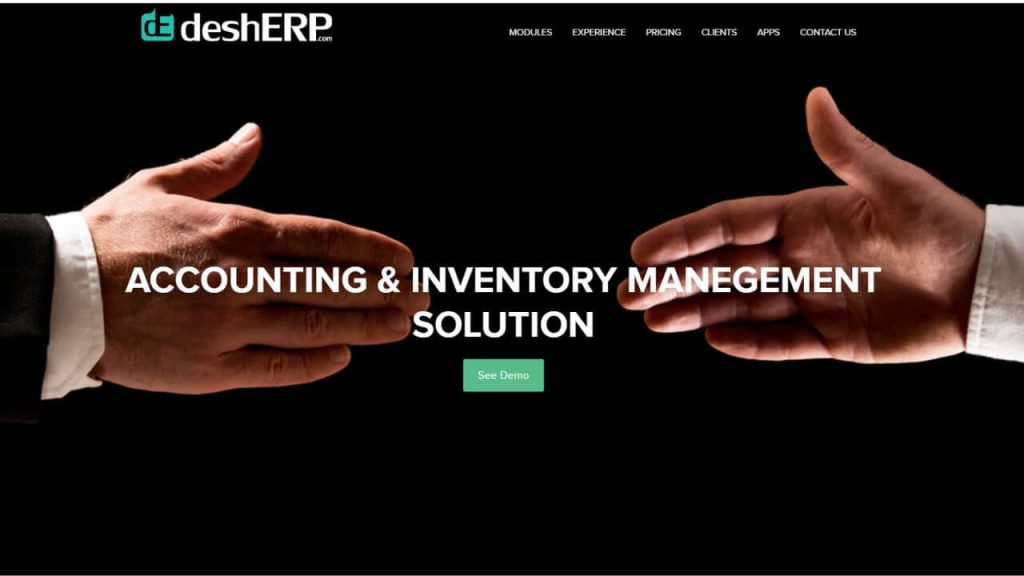
Desh ERP targets the SME market in Bangladesh with an accessible and easy-to-use solution that integrates core business functions.
- Key Features: Core Manufacturing Module, Integrated Accounting and Inventory, User-friendly Dashboard, and Reporting.
- Pros: Very affordable and great for small businesses or startups, simple to implement and learn, and good for basic inventory and financial control.
- Cons: Not suitable for complex manufacturing; lacks the depth needed for larger F&B operations.
9. Hisabnikash ERP
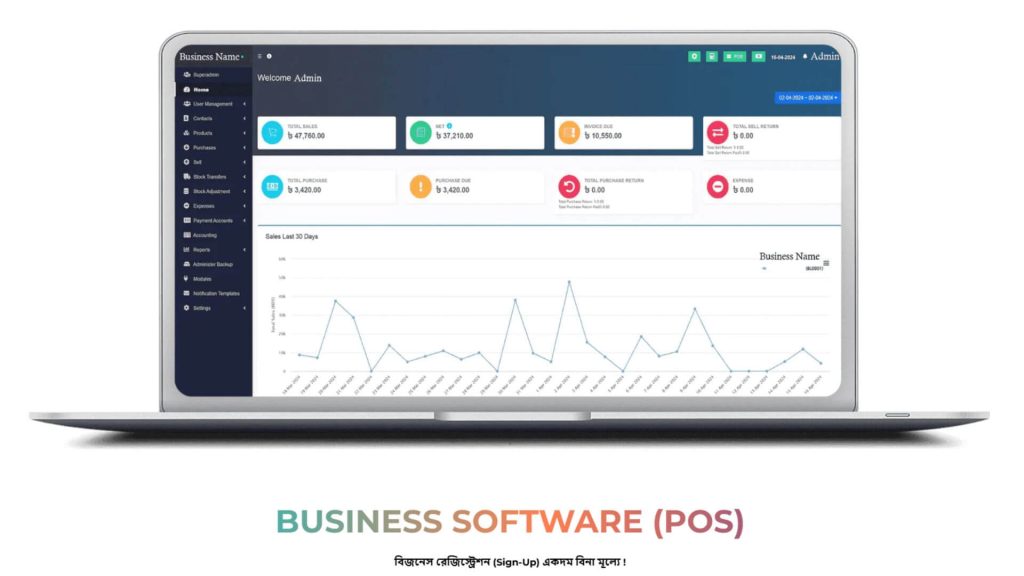
Hisabnikash is a modern, cloud-based ERP software provider from Bangladesh, specifically targeting the needs of Small and Medium Enterprises (SMEs). It offers a versatile and comprehensive platform to automate and integrate core business processes.
- Key Features: Manufacturing Management, Inventory & Stock Control, Advanced Accounting (VAT/Tax Ready), HR & Payroll, CRM module.
- Pros: Fully cloud-based, allowing for remote access, strong local support and understanding of the Bangladeshi market, and a complete set of modules for SMEs.
- Cons: As a general ERP, it is not specifically designed for the F&B industry and may lack deep features like advanced recipe management.
10. Bdtask (Bhojon)
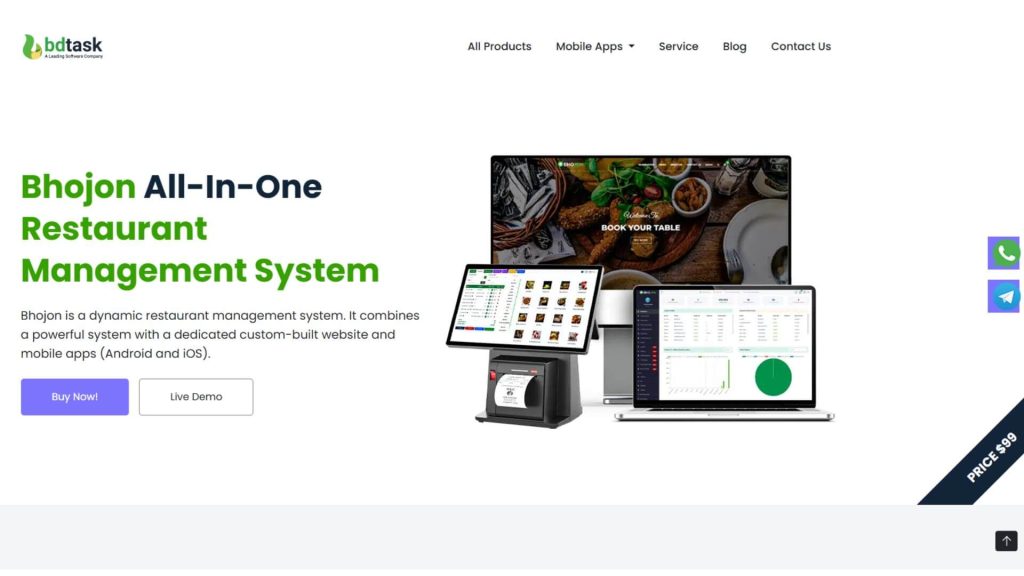
Bdtask is a specialist, but its product “Bhojon” is a leader in a crucial sub-category of the F&B industry: restaurants, cafes, and food service businesses.
- Key Features: Point of Sale (POS) & Billing, Kitchen Display System (KDS), Table Reservation, Food & Beverage Inventory for Restaurants.
- Pros: The best choice for restaurants and food service businesses, highly specialized for that operational model, and includes modern features like QR code ordering.
- Cons: It is not a manufacturing ERP and is not suitable for food processing factories.
How to Choose a Food and Beverage Manufacturing ERP?
A systematic approach helps you select a platform that fits your company’s size, budget, and operational needs. Follow these steps to make an informed choice.
Step 1: Define Your Core Needs and Challenges
First, document your biggest operational challenges, such as inventory waste, inconsistent quality control, or complex export documentation. Create a prioritized list of the main problems you need the ERP to solve.
Step 2: Identify Must-Have Features
Based on your challenges, create a checklist of essential features like inventory, production, and finance, plus unique needs like Batch and Lot Tracking. Prioritize this list into “must-haves” and “nice-to-haves” to guide your search.
Step 3: Evaluate Vendors Based on Your Business Size
It is crucial to evaluate vendors that specialize in serving companies of your scale.
- For Small Companies: Prioritize affordability and ease of use. A provider like Desh ERP offers an affordable package with essential accounting, inventory, and core manufacturing functions for the Bangladeshi SME market.
- For Large Companies: Focus on scalability and deep, industry-specific functionality. A strong local choice is Pridesys ERP, which provides a comprehensive and scalable solution for complex process manufacturing.
Step 4: Request Live, Customized Demonstrations
Never buy an ERP based on a generic demo. Insist on a live demonstration using scenarios relevant to your business, such as tracking a specific batch from raw material to finished product.
Step 5: Check Local References and Support
Good software requires good support. Ask vendors for references from other F&B companies in Bangladesh and inquire about their implementation experience and the quality of post-sales support, as a strong local team is critical for success.
FAQs
What is an ERP System?
An ERP (Enterprise Resource Planning) system is an integrated software that connects and manages all the core parts of a business. It combines functions like finance, inventory, production, supply chain, and sales into a single, unified platform, allowing the entire company to work from one source of truth.
What Are the Best Global Food and Beverage ERP Solutions?
Leading global food and beverage ERP solutions include Oracle NetSuite, SAP Business One, and Microsoft Dynamics 365.
What Are The Main Challenges for Food and Beverage Companies?
The main challenges include managing perishable inventory with short shelf lives and ensuring strict compliance with food safety regulations. They must also maintain consistent quality with precise recipe control and manage a complex supply chain that requires complete traceability.
What Are The Key Benefits of a Food and Beverage ERP?
A food and beverage ERP provides critical benefits like optimized stock control to reduce waste, enhanced traceability for food safety, and streamlined production for greater efficiency.
What Are The Core Modules For Food and Beverage ERPs?
The core modules for a food and beverage ERP include Recipe and Formula Management, Supply Chain Management, Production Management, and Quality Control.
What Are The Unique Features For Food and Beverage ERPs?
Unique features for a food and beverage ERP include Batch and Lot Tracking for traceability, Expiry Date Management to reduce spoilage, and Nutritional Information Management for labeling.
Conclusion
The unique challenges of the food and beverage industry demand a specialized solution. Selecting the right food and beverage ERP system is a critical step toward managing operational complexity and ensuring compliance. This guide has provided the essential information on benefits, modules, and top providers in Bangladesh. Evaluating your specific business needs against these options will help you choose a platform that drives efficiency, safety, and future growth.
